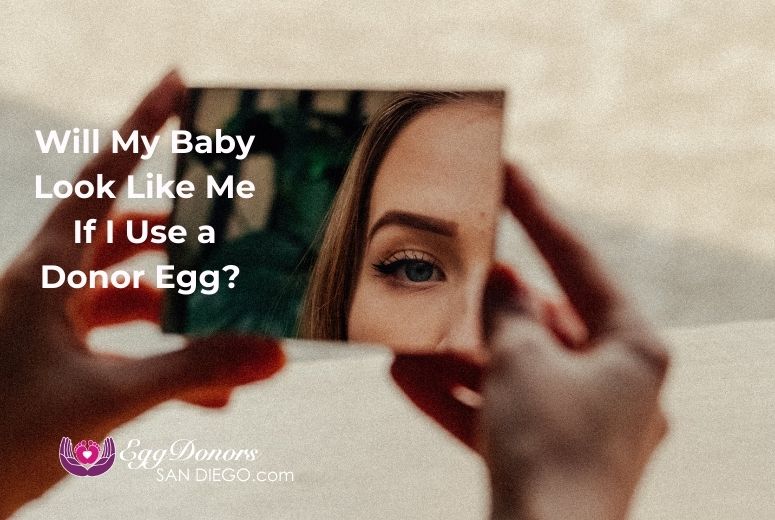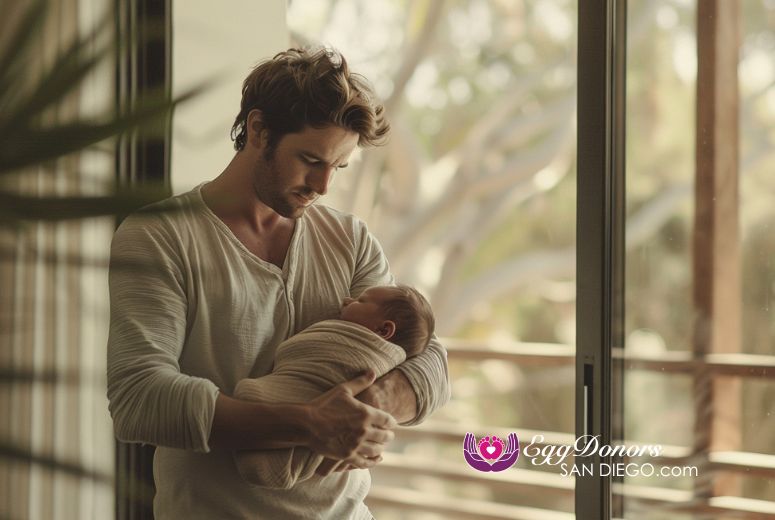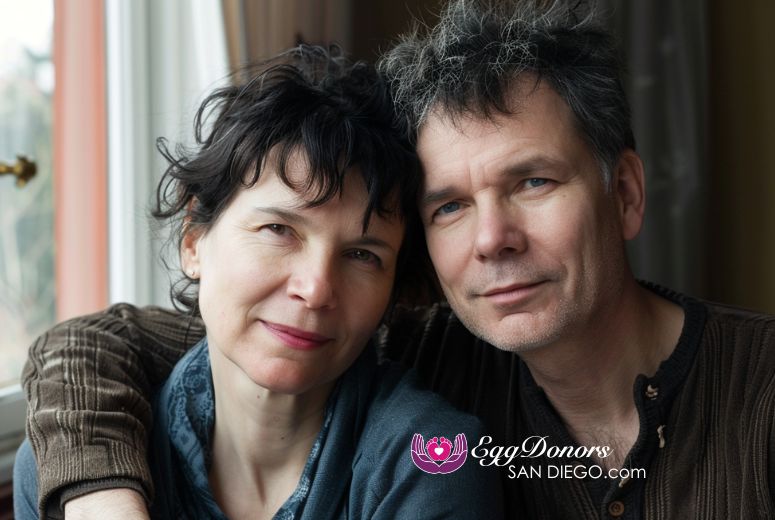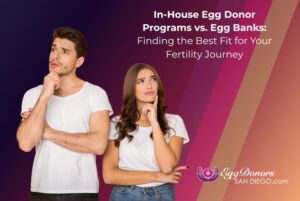What Is a Donor Egg?
Egg donation, or using a donor egg, is a sophisticated fertility treatment that allows individuals or couples to conceive when their own eggs are not viable due to age, medical conditions, lack of ovaries, or reproductive challenges. A donor egg is fertilized in vitro the laboratory, creating embryos that are then transferred into the prepared uterus.
Dr. Minoos Hosseinzadeh explains, “Egg donation allows patients to experience pregnancy and parenthood even when their reproductive capacity is limited, while also offering options for personalized genetic planning.”
How a Donor Egg Affects Your Baby’s Appearance
Many parents ask, “will my baby look like me if I use a donor egg?” The truth lies in genetics: the child inherits DNA from the egg donor and the sperm provider, not from the person carrying the pregnancy.
Key points:
- Genetic inheritance determines physical characteristics such as hair color, eye color, and height.
- The gestational parent can influence some epigenetic factors, which can subtly affect gene expression, temperament, and health outcomes.
- Traits like personality and environmental influences are shaped by nurture rather than genetics.
“Using a donor egg does not diminish the bond between the parent and child. The experience of pregnancy and nurturing is deeply personal, and parent-child resemblance extends beyond physical traits,” says Dr. Hosseinzadeh.
Why Parents Choose Egg Donation
Families pursue egg donation for a variety of reasons:
- Age-related infertility or diminished ovarian reserve
- Medical conditions affecting egg quality
- Previous unsuccessful IVF cycles
- Genetic medical conditions
- Lack of ovaries
Egg donation provides access to high-quality eggs, screened for genetic health, offering better outcomes in fertility treatment.
Dr. Hosseinzadeh emphasizes, “Egg donation empowers patients to pursue parenthood with confidence while maintaining control over health, timing, and family planning.”
Who Can Use a Donor Egg?
Egg donation is suitable for:
- Women over 35 with declining egg quality
- Individuals with genetic disorders wishing to avoid passing them on
- Same-sex male couples or single men seeking parenthood via surrogacy
- Patients with recurrent IVF failure due to egg-related issues
Each candidate undergoes thorough fertility evaluation to ensure reproductive health optimization before starting an IVF with donor egg cycle.
When to Consider Egg Donation
Timing is critical for success:
- After multiple unsuccessful IVF attempts
- When ovarian reserve testing indicates low egg quality
- In cases of premature ovarian failure or advanced reproductive age
- Same-sex male couples or single men considering seeking parenthood
Routine consultations at a fertility clinic can help patients explore fertility options and plan personalized fertility strategies.
Egg Donor Characteristics: How Resemblance Can Be Optimized
Choosing an egg donor often involves reviewing:
- Physical traits such as hair, eye color, and skin tone
- Genetic history and medical background
- Educational background or personality traits (if relevant)
While complete resemblance is unlikely, thoughtful egg donor characteristics selection allows parents to feel confident about genetic compatibility.
Genetics and Inheritance: What You Should Know
- The baby’s DNA originates from the egg donor and sperm source.
- Physical resemblance comes from the DNA, so if you want your baby to resemble yourself or your family, then choose an egg donor with similar physical traits.
- Traits like temperament, intelligence, and personality are shaped by both genetics and environment.
Dr. Hosseinzadeh notes, “Parents often find that their bond with their child transcends physical resemblance. Genetics informs appearance, but nurturing, care, and shared experiences define parenthood.”
Treatment Options for Egg Donation
Egg donation is combined with IVF to maximize success. Available treatments include:
- Fresh donor eggs
- Frozen donor eggs
- Reciprocal IVF for same-sex female couples
A personalized approach ensures higher implantation rates and overall pregnancy success. Working with a clinic like EggDonorsSanDiego.com guarantees one-on-one care with Dr. Hosseinzadeh throughout the process.
Costs of Egg Donation
Costs vary based on:
- Donor selection and screening
- IVF procedures and medications
- Genetic testing or additional services
While egg donation is a premium fertility treatment, many patients consider it a worthwhile investment in family planning and long-term reproductive health.
FAQ
Maybe, the baby will inherit genetic traits from the egg donor and sperm provider. If the physical traits of the donor that you chose are similar to your own, then the baby may resemble you. However, genetics is complicated. Even genetic siblings often don’t look alike.
Yes, you can select a donor based on physical characteristics and genetic background, though exact resemblance is rare.
Absolutely not. The bond is created through pregnancy, nurturing, and shared experiences.
IVF using donor eggs has one of the highest success rates, often exceeding 60–70% per transfer, depending on patient factors.
Schedule a consultation with a fertility clinic like EggDonorsSanDiego.com to discuss options, screening, and next steps with Dr. Hosseinzadeh.
If you’re ready to start your egg donation journey, start here.









